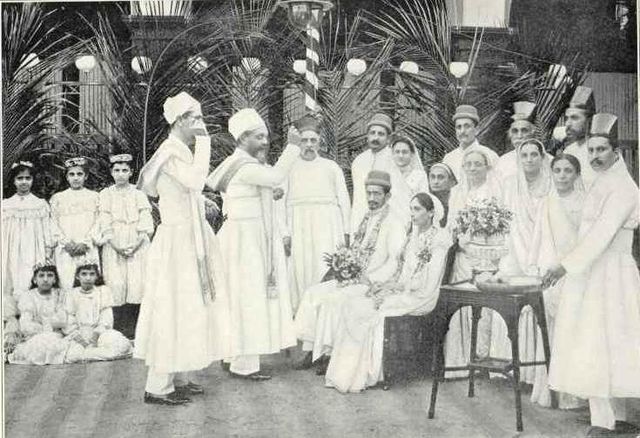Zoroastrianism, also known as Mazdayasna and Behdin, is an Iranian religion. One of the world's oldest organized faiths, it is based on the teachings of the Avesta and the Iranian prophet Zoroaster. Zoroastrians exalt an uncreated and benevolent deity of wisdom, commonly referred to as "Ahura Mazda", as the universe's supreme being; opposed to Ahura Mazda is "Angra Mainyu", who is personified as a destructive spirit and the adversary of all things good. Zoroastranism combines a dualistic cosmology of good and evil with an eschatology predicting the ultimate triumph of Ahura Mazda over evil. Opinions vary among scholars as to whether Zoroastrianism is monotheistic, polytheistic, or henotheistic. Some assert that it combines elements of all three.
Atash Behram at the Fire Temple of Yazd in Iran
A Parsi Wedding, 1905
An 8th century Tang dynasty Chinese clay figurine of a Sogdian man wearing a distinctive cap and face veil, possibly a camel rider or even a Zoroastrian priest engaging in a ritual at a fire temple, since face veils were used to avoid contaminating the holy fire with breath or saliva; Museum of Oriental Art (Turin), Italy.
Ossuary with reliefs of Zoroastrian priests attending a fire, Mullakurgan (near Samarkand), Uzbekistan, 7–8th century CE.
The Avesta is the primary collection of religious texts of Zoroastrianism, composed in the Avestan language.
French translation of the Avesta by Polish Orientalist Ignacy Pietraszewski, Berlin, 1858.
Yasna 28.1 (Bodleian MS J2)






